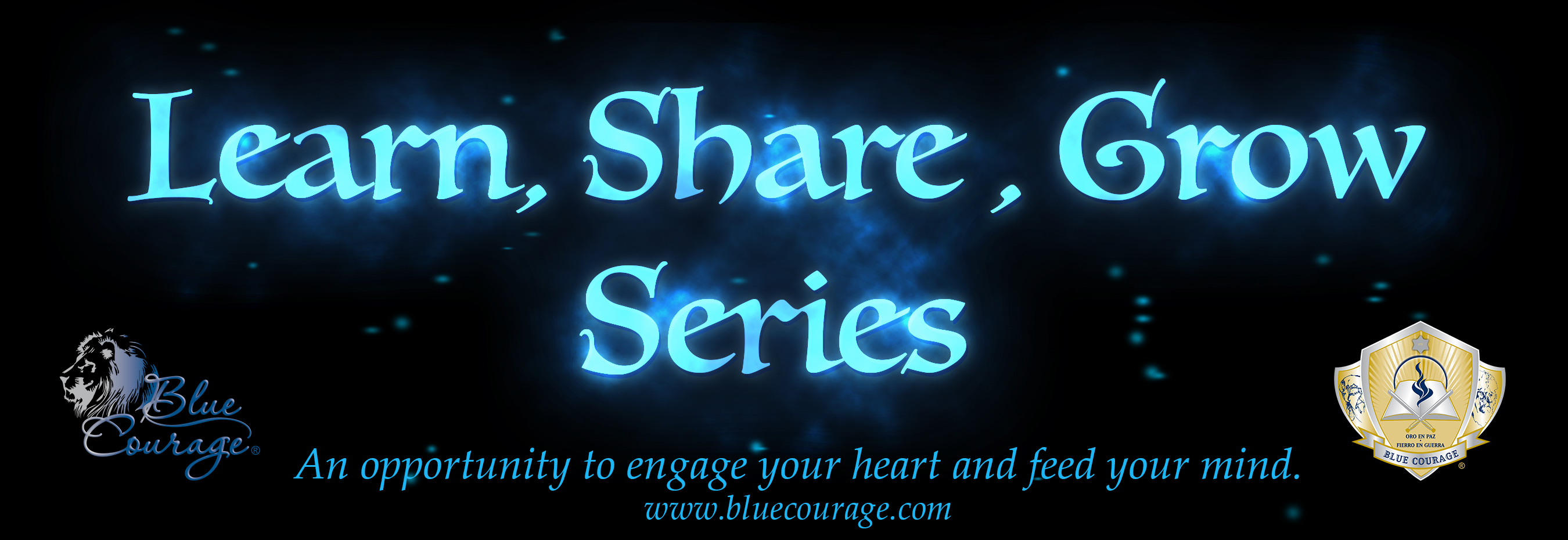Learn, Share, Grow - Compassion Is a Better Managerial Tactic

April 24, 2023
Below is a lesson from Harvard Business Review on using compassion as a managerial tactic over toughness, as well as our key learnings.
The Blue Courage team is dedicated to continual learning and growth. We have adopted a concept from Simon Sinek’s Start With Why team called “Learn, Share, Grow”. We are constantly finding great articles, videos, and readings that have so much learning. As we learn new and great things, this new knowledge should be shared for everyone to then grow from.
Why Compassion Is a Better Managerial Tactic than Toughness
by Emma Seppälä
Stanford University neurosurgeon Dr. James Doty tells the story of performing surgery on a little boy’s brain tumor. In the middle of the procedure, the resident who is assisting him gets distracted and accidentally pierces a vein. With blood shedding everywhere, Doty is no longer able to see the delicate brain area he is working on. The boy’s life is at stake. Doty is left with no other choice than to blindly reaching into the affected area in the hopes of locating and clamping the vein. Fortunately, he is successful.
Most of us are not brain surgeons, but we certainly are all confronted with situations in which an employee makes a grave mistake, potentially ruining a critical project.
The question is: How should we react when an employee is not performing well or makes a mistake?
Continue Reading Here.
Key Learnings:
- When an employee makes a mistake, the natural reaction is frustration -- and something we can all identify with. Expressing our frustration can relieve stress and anger caused by the mistake.
- The traditional approach to dealing with mistakes is to reprimand the employee in some way, hoping that the punishment will teach the employee and help the rest of the team to avoid making future errors.
- Another approach when confronting an underperforming employee, however, is compassion and curiosity. Frustration and worry is still present, but this approach suspends judgement and uses the moment for some coaching.
- Research shows that the more compassionate response will get more powerful results.
- Compassion and curiosity increases employee loyalty and trust. The more an employee looks up to their leaders and are moved by their compassion or kindness (whether to that employee or by witnessing your behavior towards another person), the more loyal they become to that leader.
- Responding with anger or frustration erodes loyalty. We are especially sensitive to signs of trustworthiness in our leaders -- compassion increases our willingness to trust. Neuroimaging research confirms that our brains respond more positively to leaders who show us empathy.
- An angry response inhibits creativity by increasing the employee's stress levels. Creating an environment of fear, anxiety and lack of trust makes people shut down. The threat response is engaged when having fear or anxiety, and their cognitive control is impacted which diminishes productivity and creativity.
- When a leaders responds in a frustrated, furious manner, the employee is less likely to take risks in the future due to fear of a negative consequence of making mistakes. This kills any experimentation culture that is critical to learning and innovation.
- Research shows that feelings of anger can have beneficial results, such as energy to stand up against injustice. However, when leaders express negative emotions like anger, employees view the leader as less effective.
- How to respond with more compassion:
- Take a moment - Take a step back and control your own emotional response. If you act out of emotional engagement you are not thoughtful about your approach to the problem. Practicing meditation regularly can help improve your self-awareness and emotional control. Don't pretend to not be angry -- take some time to cool off so you can see the situation with more detachment.
- Put yourself in your employees' shoes - Taking a step back can help give you the ability to empathize with your employee. The ability to perspective-take is valuable. It helps you to see aspects of the situation you may not have noticed and leads to better results in interactions and negotiations.
- Forgive - Empathy helps you forgive. Forgiveness strengthens relationships by promoting loyalty and is healthy for the forgiver. Holding a grudge negatively affects blood pressure and heart rate whereas forgiveness lowers both and that of the person being forgiven. Forgiveness makes everyone happier and more satisfied with life, reducing stress and negative emotions.
- When trust, loyalty, and creativity are high and stress is low, people happier, more productive and it lowers turnover. Positive interactions make employees healthier and lowers sick days.
- Compassionate leaders improves customer service and client outcomes/satisfaction.
- Compassionate leadership does not mean there isn't accountability, but compassionate responses does not destroy an employee and allows them to learn the lesson while encourages them to improve.
Stay connected with news and updates!
Join our mailing list to receive the latest news and updates from our team.
Don't worry, your information will not be shared.
We hate SPAM. We will never sell your information, for any reason.

